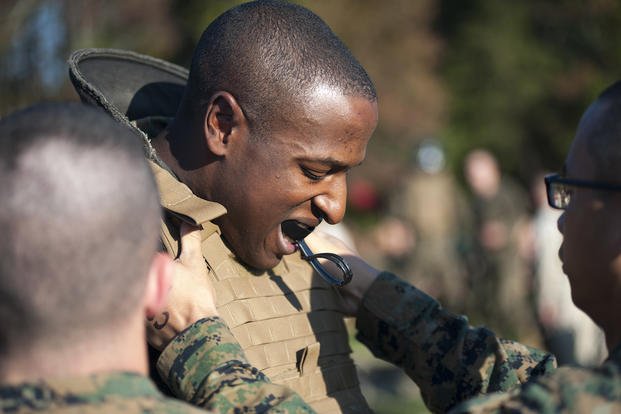So you have a college degree and are thinking about what you want to do with your life? Many attempt to join the military through the Officer Candidate School (OCS) route. There are many opportunities military-wide for young college grads seeking to lead in the military; however, officer slots for any of the Special Forces units are few and hard to come by. The latest numbers for SEAL officer candidates were about one in eight get accepted to attend SEAL training after OCS.
Applying to Officer Candidate School and wanting to become a Navy SEAL means you will be selected to go to BUD/S immediately after you complete OCS. You will be accepted to attend SEAL training by a board of SEAL officers, and then they will send you to OCS first, with immediate follow-on training at BUD/S.
You will be accepted to attend SEAL Officer Assessment and Selection training by a board of SEAL officers -- then to OCS if they want you to attend BUDS in the future. Applying to Officer Candidate School and wanting to become a Navy SEAL means you will be selected to go to BUD/S immediately after you complete OCS.
This is good. You will know before you are sworn in that you are going to be afforded the opportunity to attend SEAL training. It is a hard road; you also are competing with enlisted SEALs with college degrees seeking to become officers.
This route will require you to be highly competitive in everything. Here are what I consider the top five:
1. College grades should be great -- a 3.5 grade-point average or above
2. Extra courses -- language skills perhaps and awards
3. College athletics is a plus. Team captain helps more, as do leadership roles.
4. SEAL physical screening test (PST) scores should be stellar: 500-yard swim -- 8 minutes and under; 100 push-ups in two minutes; 100 sit-ups in two minutes; 20 pull-ups; and a 1.5-mile run in nine minutes and under.
5. Letters of recommendations -- The best ones are from someone who really knows you, not just some former SEAL who knew you for 10 minutes during an interview. However, you need those, too, as they count as interviews with a SEAL or former SEAL.
Criminal records, medical issues and test scores should be without issue in order to get accepted. See your local officer recruiter if you are seeking the OCS route after college.
Realize that there is a timeline each year you need to adhere to. By January or February, you should be done with your recruiting process, applications, medical screening, testing and letter of recommendation. The board will convene in late February or early March and will determine whether you get the opportunity to attend SEAL Officer Assessment and Selection (SOAS) that summer. You need to be 100% prepared for your mini-BUD/S stint, as you will be tested in all areas of fitness, leadership and followership/teamwork, and be interviewed by the SEAL board.
Stew Smith is a former Navy SEAL and fitness author certified as a Strength and Conditioning Specialist (CSCS) with the National Strength and Conditioning Association. Visit his Fitness eBook store if you’re looking to start a workout program to create a healthy lifestyle. Send your fitness questions to stew@stewsmith.com.
Want to Learn More About Military Life?
Whether you're thinking of joining the military, looking for fitness and basic training tips, or keeping up with military life and benefits, Military.com has you covered. Subscribe to Military.com to have military news, updates and resources delivered directly to your inbox.




















